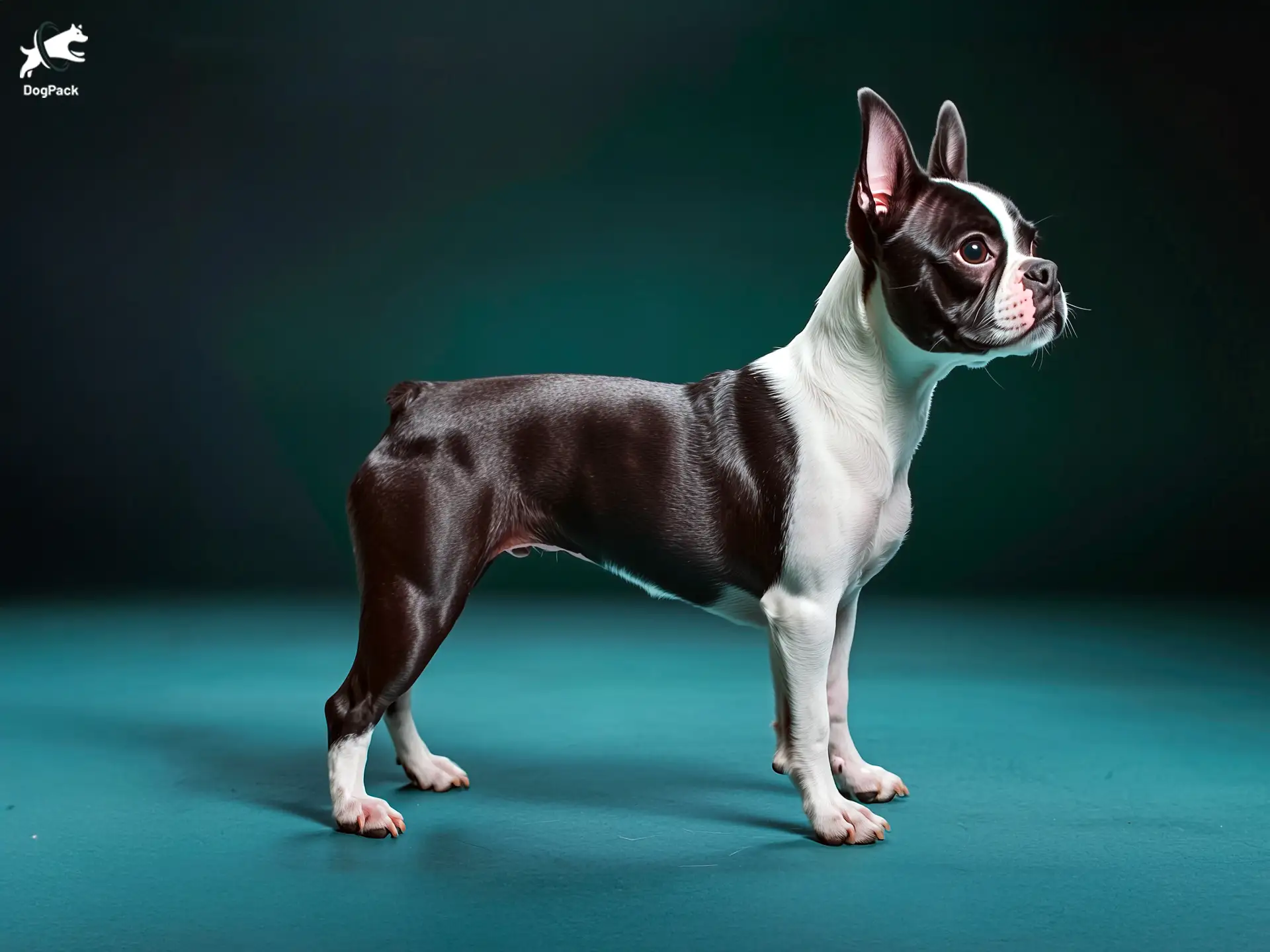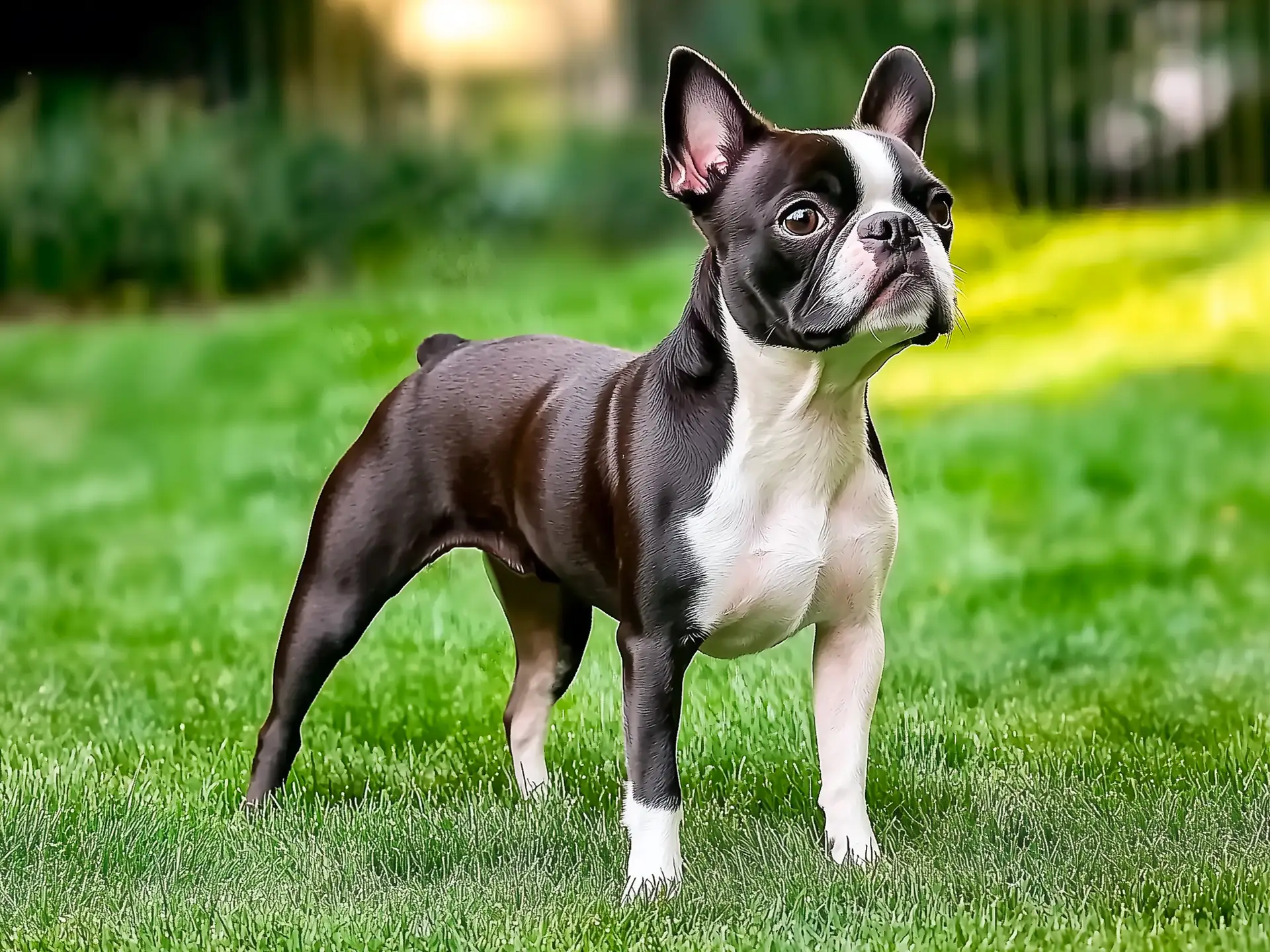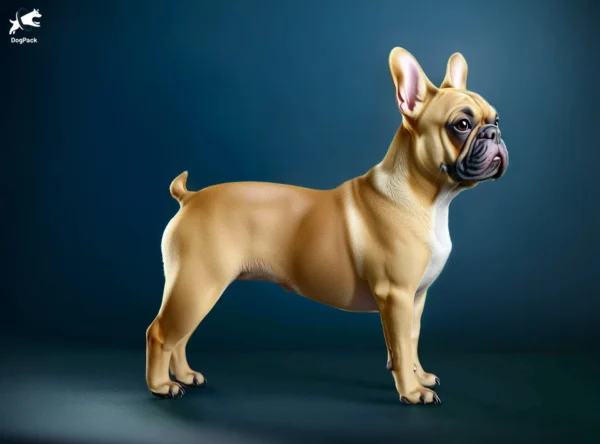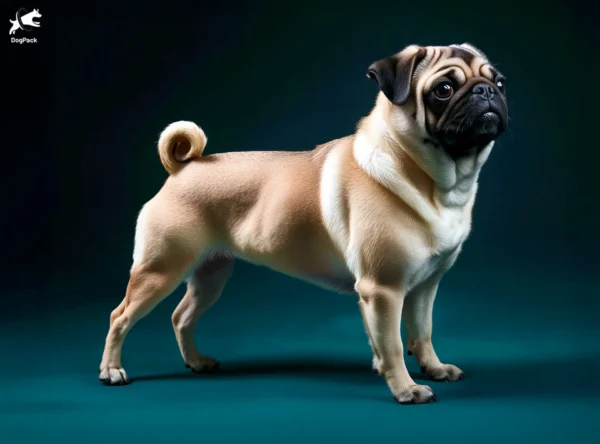Boston Terrier Dog Breed Info & Overview
Known as “America’s Gentleman,” the Boston Terrier is a small, friendly breed with a tuxedo-like coat and a big heart. Originating in the United States, these dogs are loved for their affectionate nature, intelligence, and adaptability. Perfect for city or suburban living, the Boston Terrier makes an excellent companion for all ages.
Characteristics
Pictures
Breed History
The Boston Terrier originated in the late 19th century in Boston, Massachusetts. The breed was created by crossing English Bulldogs with white English Terriers, aiming to develop a new breed with a distinctive appearance and gentle disposition. The result was a small, sturdy dog with a tuxedo-like coat and a friendly personality.
Known as the first breed developed in the United States, the Boston Terrier quickly gained popularity. In 1893, it was officially recognized by the American Kennel Club, becoming one of the first non-sporting breeds in the country. The breed’s nickname, “The American Gentleman,” reflects its polite demeanor and stylish appearance.
Originally bred for pit fighting, the breed’s gentle nature soon made it more suited as a companion animal. Over time, breeders focused on refining its temperament, resulting in the affectionate and intelligent dogs we know today. The Boston Terrier remains a symbol of American canine breeding success.
Temperament, Personality
Boston Terriers are known for their friendly and affectionate nature. They form strong bonds with their families and love to be involved in all activities. Their intelligent and lively personalities make them entertaining companions who enjoy playtime and cuddles alike.
These dogs are generally good with children and other pets, especially when socialized early. Their gentle disposition makes them suitable for families of all sizes. While they can be protective, they are typically welcoming to strangers, displaying curiosity rather than aggression.
Boston Terriers have a playful streak and a sense of humor, often clowning around to amuse their owners. They thrive on human interaction and may develop separation anxiety if left alone for long periods. Their adaptable nature makes them suitable for various living situations, including apartments.
Physical Characteristics
Small and compact, Boston Terriers are easily recognizable by their distinctive tuxedo-like coat, which comes in black, brindle, or seal with white markings. Their short, sleek fur requires minimal grooming, adding to their appeal as low-maintenance pets.
With a square-shaped head, short muzzle, and expressive eyes, they have a unique and endearing appearance. Their ears stand erect, giving them an alert look, while their sturdy build reflects their Bulldog ancestry. Despite their small size, they are muscular and well-proportioned.
Typically weighing between 12 and 25 pounds, they stand about 15 to 17 inches tall. Their compact size makes them suitable for apartment living, but they still possess a lively energy that needs to be channeled through regular exercise and play.
Health Issues
Boston Terriers are generally healthy but can be prone to certain health issues. One common concern is brachycephalic syndrome due to their short snouts, which can lead to breathing difficulties, especially in hot or humid weather. Owners should monitor their activity levels to prevent overheating.
Eye problems are also prevalent in the breed, including cataracts and corneal ulcers. Regular veterinary check-ups can help detect and manage these conditions early. Additionally, some may experience deafness, particularly in one ear, which can affect training and behavior.
Patellar luxation, a condition where the kneecap dislocates, is another health issue to watch for. Maintaining a healthy weight and avoiding excessive jumping can reduce the risk. Responsible breeders should perform health screenings to minimize genetic disorders in Boston Terriers. The American Kennel Club provides detailed information on breed-specific health concerns.
Grooming Needs
With their short, smooth coat, grooming a Boston Terrier is relatively easy. Weekly brushing with a soft-bristle brush helps remove loose hair and keep their coat shiny. They are moderate shedders, so regular grooming minimizes hair around the home.
Bathing is needed only occasionally, typically every few months, unless they get particularly dirty. Use a gentle dog shampoo to protect their skin and coat. Their facial wrinkles should be cleaned regularly to prevent irritation and infection.
Don’t forget to check their ears for debris and clean them as needed. Regular nail trimming is essential, as overgrown nails can cause discomfort. Dental hygiene is also important; brushing their teeth several times a week helps prevent dental disease.
Exercise Requirements
While not excessively energetic, Boston Terriers do require daily exercise to stay healthy and happy. A brisk 30-minute walk or interactive play sessions are usually sufficient to meet their needs. They enjoy games like fetch or tug-of-war, which stimulate both mind and body.
Due to their brachycephalic nature, they can be sensitive to extreme temperatures. Avoid strenuous activities during hot or humid weather to prevent overheating. Indoor play can be a great alternative during inclement weather, keeping them active without risk.
Their moderate energy levels make them suitable dogs for apartments, as long as they receive daily walks and playtime. Boston Terriers also appreciate mental stimulation. Puzzle toys or obedience training can provide the mental exercise they crave, preventing boredom-related behaviors like chewing or excessive barking.
Training Tips
Known for their intelligence, Boston Terriers are generally eager to please, making training relatively straightforward. Positive reinforcement techniques work best, using treats and praise to encourage desired behaviors. Consistency and patience are key to successful training.
Socialization from an early age helps them become well-adjusted adults. Expose them to different people, places, and situations to build confidence. Obedience classes can be beneficial, providing structured learning and opportunities to interact with other dogs.
Housebreaking may require extra attention, as some can be stubborn. Establish a regular routine and be vigilant for signs they need to go outside. Crate training can also aid in housebreaking and provide a safe space for your Boston Terrier.
Nutrition, Diet
Feeding a Boston Terrier requires attention to portion sizes to prevent obesity, a common issue in the breed. Typically, they need about 0.5 to 1.5 cups of high-quality dry dog food per day, divided into two meals. The exact amount depends on their age, weight, and activity level.
Choose a dog food formulated for small breeds, ensuring it provides balanced nutrition with appropriate protein and fat levels. Some Boston Terriers may have food allergies or sensitivities; monitoring their reaction to different foods can help identify any issues.
Avoid overfeeding and limit treats to training rewards. Table scraps are discouraged, as they can lead to weight gain and digestive problems. Fresh water should always be available to keep them hydrated, especially after exercise.
Adoption, Breeders
When looking to add a Boston Terrier to your family, consider adopting from a rescue organization or shelter. Many purebred dogs are in need of homes, and adoption gives them a second chance. Check local shelters or breed-specific rescues like the American Boston Terrier Rescue & Rehabilitation.
If you prefer to purchase from a breeder, ensure they are reputable and prioritize the health and well-being of their dogs. Ask for health clearances and visit the breeding facility to observe the conditions. The Boston Terrier Club of America provides resources for finding responsible breeders.
Avoid purchasing from pet stores or online sellers without verifiable credentials, as these sources may support puppy mills. Investing time in finding a trustworthy breeder or adoption agency ensures you bring home a healthy, well-adjusted Boston Terrier.
Family Pet?
Boston Terriers make excellent family pets due to their affectionate and gentle nature. They are known to get along well with children, often forming strong bonds and enjoying playtime. Their size and temperament make them a suitable choice for families living in various environments.
With proper socialization, they coexist peacefully with other pets, including dogs and cats. Their friendly disposition reduces the likelihood of aggressive behavior. However, supervision is recommended during initial interactions to ensure harmony among all household animals.
Boston Terriers thrive on human companionship and prefer not to be left alone for extended periods. Their adaptability and love for family activities make them a delightful addition to homes seeking a loyal and entertaining companion.
Right For You?
Before bringing a Boston Terrier into your home, consider whether their needs align with your lifestyle. They are ideal for individuals or families seeking a small, affectionate dog that doesn’t require excessive exercise. Their moderate energy levels suit both active and more relaxed households.
If you live in an apartment or have limited space, their compact size and adaptability make them a great fit. However, be prepared to provide plenty of attention, as they crave companionship and may develop separation anxiety if left alone too often.
Potential owners should also be mindful of the breed’s health considerations, particularly related to breathing issues. If you can commit to their care and embrace their loving nature, a Boston Terrier could be the perfect addition to your life.
Conclusion
Charming, intelligent, and affectionate, the Boston Terrier offers a delightful combination of companionship and entertainment. Their adaptable nature makes them suitable for various living situations, from bustling cities to quiet suburbs. With minimal grooming needs and a manageable exercise requirement, they fit well into the lives of both busy individuals and families.
However, potential owners should be aware of their need for human interaction and possible health issues related to their brachycephalic features. If you’re seeking a small dog with a big personality and are ready to provide the love and attention they deserve, the Boston Terrier could be the perfect match. Their endearing antics and loyal companionship are sure to bring joy to any household.
FAQs
-
Do Boston Terriers snore?
Yes, Boston Terriers are known to snore due to their brachycephalic (short-nosed) facial structure. Their shortened airways can cause snoring and occasional snorting sounds. While usually harmless, severe snoring may indicate breathing issues that should be checked by a veterinarian.
-
Are Boston Terriers good for allergy sufferers?
Boston Terriers have a short coat but are not considered hypoallergenic. They do shed minimally, but dander can still trigger allergies in sensitive individuals. Regular grooming and cleaning can help reduce allergens, but they may not be the best choice for severe allergy sufferers.
-
Can Boston Terriers swim?
Boston Terriers are generally not strong swimmers due to their body structure and short muzzle. They may struggle to keep afloat and can tire easily in the water. If near pools or bodies of water, supervision is essential, and a dog life jacket is recommended.
-
How vocal are Boston Terriers?
Boston Terriers are not typically excessive barkers. They may alert their owners to strangers or unusual noises but are considered moderate in their vocalization. Proper training can help manage any unwanted barking behaviors.
-
Do Boston Terriers get along with cats?
With proper introduction and socialization, Boston Terriers can get along well with cats. Their friendly and adaptable nature allows them to coexist peacefully with feline companions, especially if they are raised together from a young age.
Breed Ratings
Boston Terriers are intelligent and quick learners, making training relatively easy with positive reinforcement techniques.
This breed is highly playful, enjoying interactive games and activities that engage both their mind and body.
They have a moderate energy level, requiring regular but manageable exercise to keep them content and prevent boredom.
Boston Terriers shed minimally, making them a good choice for those seeking a low-shedding breed.
They have a low prey drive and are less likely to chase small animals, but proper socialization is still important.
With their short coat, grooming is minimal and easy, requiring only occasional baths and regular brushing.
Eager to please and intelligent, they respond well to consistent, positive training methods.
Boston Terriers prefer companionship and may experience separation anxiety if left alone for extended periods.
They are moderate barkers, typically vocalizing to alert their owners but not excessively.
Drooling is minimal with this breed, making them a tidy choice for indoor living.
Generally friendly towards other dogs, especially when properly socialized from a young age.
While generally healthy, they can be prone to specific health issues related to their brachycephalic structure.
























